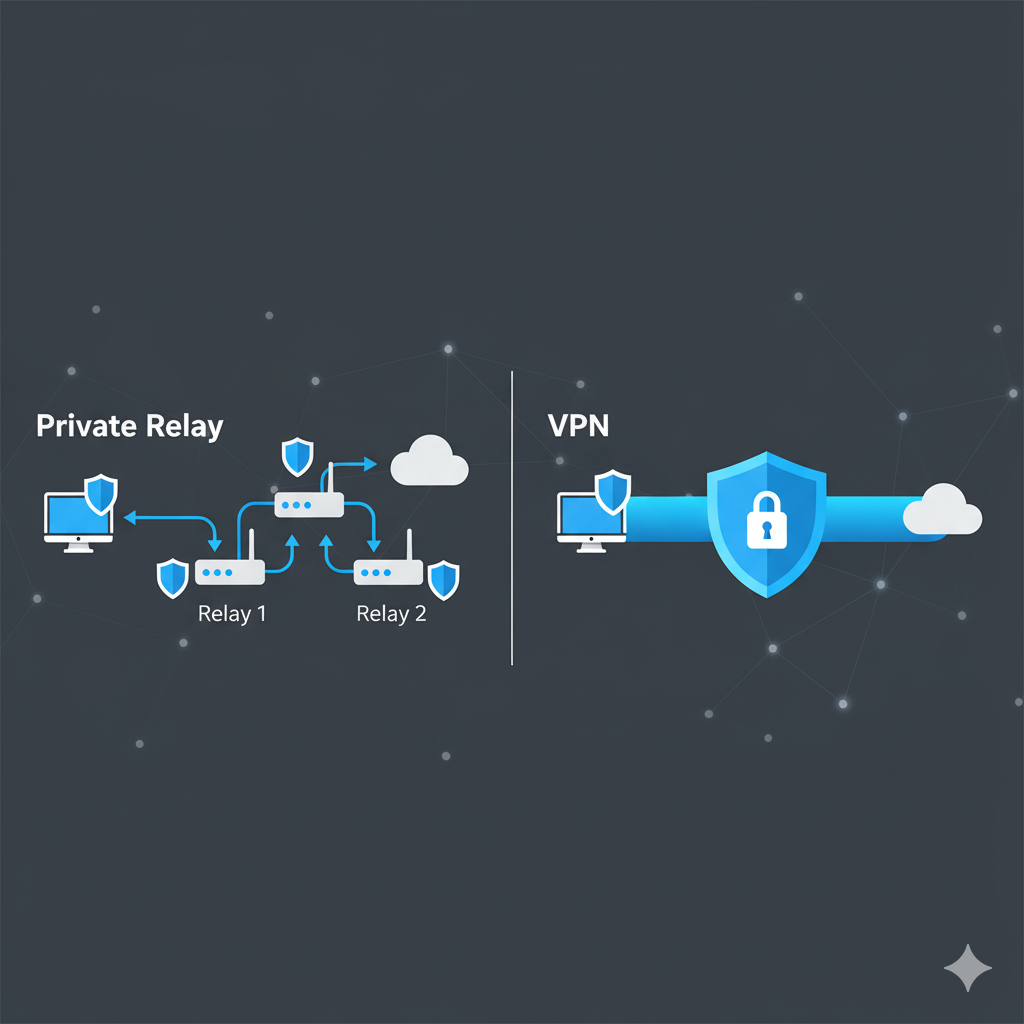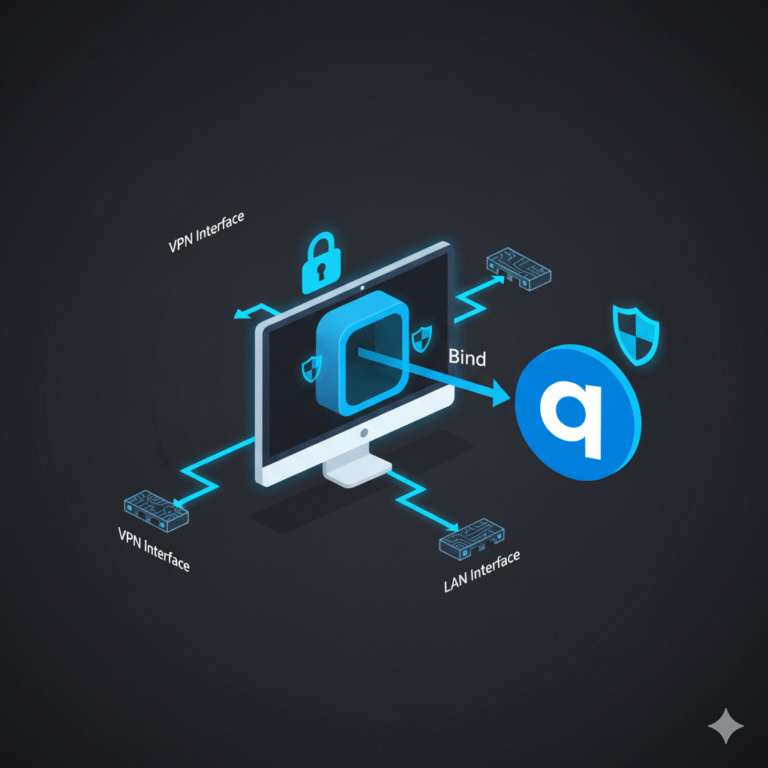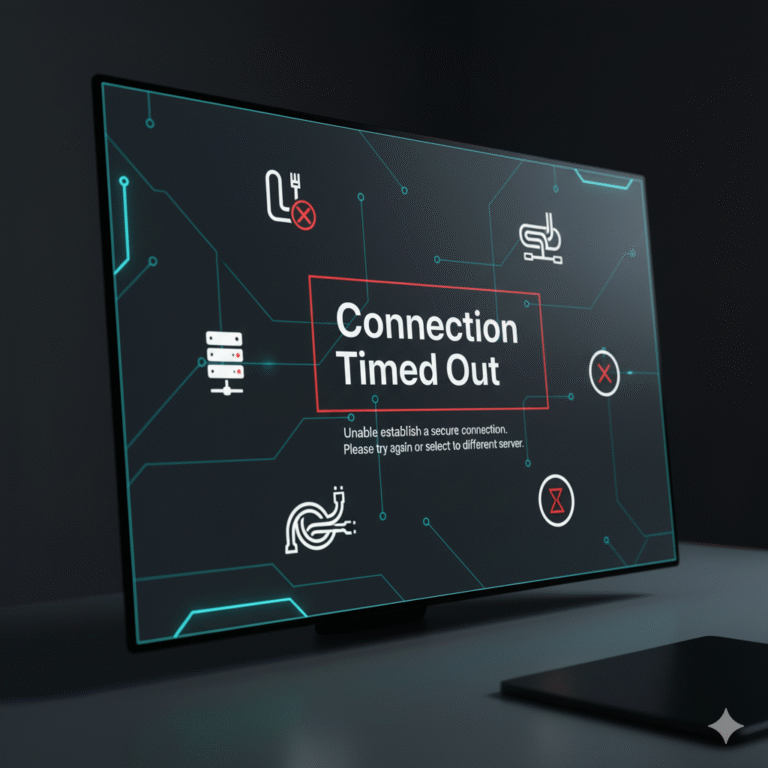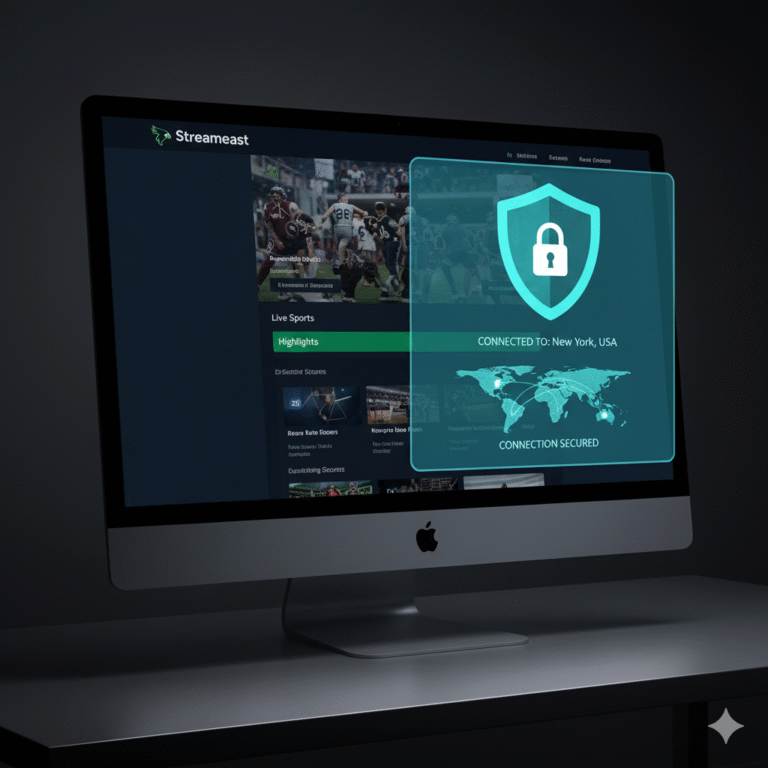iCloud’s Private Relay often raises a critical question among privacy-aware users: is private relay a vpn? In this article, we answer that precisely, show how Private Relay works, compare it with traditional VPNs, and advise when one or both make sense.
What is iCloud Private Relay?
Private Relay is an Apple privacy feature available to iCloud+ subscribers. When active, your Safari web traffic is routed through two separate relays so that no single entity can see both who you are and what websites you visit. The first relay (run by Apple) sees your real IP but not the website destination; the second relay (a third-party) sees the destination but not your actual IP. Private Relay works only for Safari, not for other browsers or all apps. (Source: NordVPN)
Does that mean is private relay a vpn? In short: no. It is a privacy proxy for browser traffic, not a full VPN.
Why is private relay not a VPN?
A VPN (Virtual Private Network) creates a secure, encrypted tunnel between your device and a remote server, routing all your internet traffic through that tunnel. Because of this, VPNs can protect any app or service on your device—not just your browser. Private Relay, by contrast, limits itself to Safari traffic and associated DNS lookups. (Source: veepn.com)
A VPN also typically allows you to choose virtual server locations (e.g., jump to another country) and hide your traffic from your ISP. Private Relay does not permit full geolocation spoofing—its assigned IPs stay within your region or time zone.
How does Private Relay compare to VPNs in real use?
What features does Private Relay offer?
Hides your IP address (in Safari) from websites and trackers
Encrypts DNS and web requests so your ISP can’t see which sites you visit (Apple Support)
Integrated and simple for Apple users using iCloud+
No additional setup or third-party app (within Apple ecosystem)
What it does not do (or does weakly)
It doesn’t protect non-Safari apps or traffic
It doesn’t let you pick a distant server or bypass geo-blocks
The second relay is handled by an external provider whose decryption sees site names (without mapping to your IP)
It does not offer advanced VPN features (kill switch, split tunneling, multi-hop)
Speed and latency may degrade depending on relay load or routing
Constraints and performance:
Testing constraints
Private Relay tests often only examine Safari traffic—not full device throughput
ISP, network congestion, and relay server load vary widely in real conditions
Some networks or carriers may block Private Relay or disable it (e.g. due to parental filters or regulatory restrictions)
👉 Learn more than how to bind vpn to qbittorrent – secure torrent binding
Performance caveats
Because traffic is rerouted through two relays, latency may increase slightly
Throughput may be lower than direct or VPN routes depending on distance and relay capacity
In locations where Private Relay is blocked, you may experience failures to connect
Guidance for interpreting results
Compare Private Relay vs VPN only for the same traffic types (Safari / web)
Don’t expect full VPN-level protection from Private Relay
Use VPN when you need device-wide encryption, location spoofing, or coverage beyond Safari
Is Private Relay enough for your needs?
If your goal is simple — prevent your ISP or network from seeing which websites you visit in Safari on Apple devices — Private Relay may suffice. But if you need to protect all apps, bypass geo-restrictions, or access advanced VPN features, then a full VPN remains necessary.
How (and when) to combine Private Relay + VPN
You can use a VPN concurrently: traffic routed through your VPN generally bypasses Private Relay, because the VPN tunnel takes precedence. (Apple Support Communities) In practice, the VPN handles all traffic, while Private Relay may not be used in that scenario. (Apple Support Communities)
Conclusion
The question is private relay a vpn is answered by understanding that Private Relay is not a VPN—it offers a narrower, browser-level privacy proxy rather than full device encryption. If you require broader protection, a VPN remains the more capable tool.
Internal Link: AirVPN vs NordVPN — AirVPN vs NordVPN: Which VPN Offers Better Security & Speed?
Can Private Relay replace a VPN for online privacy?
For most users, the short answer is no. Private Relay focuses only on encrypting Safari web requests and obscuring IP data from websites. VPNs, on the other hand, encrypt all network traffic—system-wide. This means your mail client, torrenting app, or game traffic remain outside Private Relay’s reach.
If you are streaming, downloading, or using region-restricted platforms, Private Relay won’t help you bypass content locks. A VPN, however, lets you connect through servers in specific countries to unlock content globally. You can learn more about app-specific VPN setup in guides such as Internal Link: how to bind qbittorrent to vpn for secure torrenting — how to bind qbittorrent to vpn for secure torrenting.
What are the privacy differences between Private Relay and VPNs?
Private Relay’s two-relay system separates identity from destination, which limits the power of any single entity. However, it doesn’t provide absolute anonymity. Your Apple account, device identifiers, and iCloud settings can still tie activity to your identity. A VPN, by contrast, can mask your IP and encrypt your data across all apps, with strict no-log policies (depending on provider). For instance, see how leading services perform in the Internal Link: NordVPN Review — NordVPN Review: Top Features & Performance in 2025 and Internal Link: ExpressVPN Review — ExpressVPN Review – Tested in 2025: Speed, Privacy & Ease.
Can you bypass geo-restrictions with Private Relay?
No. Apple’s service intentionally prevents users from changing their apparent region beyond a limited local IP range. This means Netflix libraries, sports sites, or social platforms restricted by geography will remain locked. If bypassing regional restrictions is essential, a VPN remains the go-to solution. For instance, see how to view content abroad in Internal Link: how to watch jio cinema in usa without vpn – Easy Guide.
Security aspects:
Private Relay uses modern TLS and HTTP/3 encryption with Apple-signed certificates. It ensures that ISPs cannot inspect your Safari traffic, but it doesn’t prevent the destination site from fingerprinting your device or tracking via cookies. VPNs, by encrypting everything at the IP level, block most metadata leaks, though performance can depend on protocol choice (OpenVPN, WireGuard, etc.).
Does Private Relay log your data?
Apple states that it does not log your browsing history or tie it to your Apple ID. The relay partners (such as Cloudflare or Akamai) are contractually bound not to store identifiable information. However, this trust is still within Apple’s closed ecosystem and not subject to independent audits—unlike some VPNs that publish annual transparency reports (source: techradar.com).
When should you use a VPN instead?
Use a VPN if you:
Rely on non-Safari browsers or apps for most traffic.
Need to connect securely to public Wi-Fi or corporate networks.
Want to spoof locations or bypass censorship.
Require audit-verified privacy assurances.
You can also explore specialized configurations like VPN concentrators for enterprise use in Internal Link: what is a vpn concentrator — what is a vpn concentrator: Secure Multi-Tunnel VPN Device.
Is there any downside to using both?
Running both simultaneously may cause conflicts because VPNs tunnel all traffic, making Private Relay redundant. iOS will automatically disable Private Relay when a VPN is active. Users who prioritize complete traffic encryption should leave only the VPN enabled.
Practical recommendation:
For everyday Safari users focused on lightweight privacy: Private Relay is simple and efficient.
For professionals, remote workers, or power users needing privacy beyond Safari: choose a reputable VPN with verified no-log policy.
For torrenting or sensitive downloads, always rely on a VPN to avoid IP exposure.
Final comparison summary
FeaturePrivate RelayVPNScopeSafari onlyEntire deviceGeo-spoofingNoYesEncryptionDouble relay TLSTunnel (AES-256 / WireGuard)App coverageLimitedAll appsAnonymityPartialFull (provider-dependent)ControlApple managedUser choiceIdeal forBasic browser privacyFull privacy & unblocking
Conclusion
Ultimately, the debate around is private relay a vpn ends with clarity: it is not. Private Relay is a privacy enhancement for Safari users, not a full security solution. For anyone serious about anonymity, global access, or device-wide encryption, a trustworthy VPN remains indispensable.
Advanced technical comparison
Private Relay operates using Apple’s proprietary architecture integrated with iCloud infrastructure. It relies on two separate Internet relays — the ingress relay and the egress relay — to prevent either Apple or the third-party partner from knowing both your IP address and the websites you visit. This approach offers partial anonymity within Apple’s ecosystem but lacks the broader transport-layer coverage of VPN protocols such as OpenVPN or WireGuard (source: wikipedia.org).
VPNs function at the network layer (Layer 3), encapsulating all traffic and rerouting it through secure servers across the world. The key distinction lies in control and scope: VPNs give the user the ability to select endpoints, routing rules, and security levels, whereas Private Relay’s design is static, controlled by Apple’s servers, and unavailable outside Safari.
Legal and compliance differences
Private Relay is subject to Apple’s operational policies and regional restrictions. Some countries — such as China, Saudi Arabia, and Belarus — block or restrict Private Relay entirely due to regulatory limitations. VPNs, by contrast, exist under varying legal frameworks but provide flexibility through different jurisdictions and providers. For example, Internal Link: is vpn legal in china – What You Must Know (2025) explores how VPN legality differs by region and which providers can still function under strict regimes.
Enterprise and security-sensitive use
Businesses often need device-wide encrypted tunnels for data protection and secure access to corporate resources. Private Relay cannot serve that role because it only anonymizes Safari browsing and does not allow private server endpoints. Corporate setups typically deploy VPN concentrators or site-to-site VPNs, covered in Internal Link: which statement describes an important characteristic of a site-to-site vpn — which statement describes an important characteristic of a site-to-site vpn.
User experience and ecosystem impact
Private Relay is effortless to activate: a single toggle in iCloud settings enables encryption for Safari users. There’s no need for extra apps or credentials, making it appealing for casual privacy protection. However, because the IP remains regionally assigned, websites relying on IP-based personalization continue to show local content. VPNs, meanwhile, offer powerful features like split tunneling, port forwarding, and dynamic IP rotation, giving users a more customizable experience.
Constraints and performance (extended insight):
Performance variability
Testing from independent sources such as Tom’s Guide and The Verge shows minor speed drops when using Private Relay — often less than 10% compared with direct connections — while VPNs can range from 10–30% depending on protocol and server distance. The dual-hop design of Private Relay is efficient, yet latency-sensitive tasks (gaming, live video calls) may still perform better under optimized VPN routes.
Security limitations
Private Relay does not hide metadata such as your Apple ID or device information from Apple services. Moreover, DNS traffic and web requests are anonymized only in Safari; background app updates, mail synchronization, and messaging remain outside its encryption. VPNs, when configured correctly, encrypt these channels too, providing broader leak protection.
Device compatibility
Private Relay works exclusively on Apple devices (macOS, iOS, iPadOS). VPNs, in contrast, support nearly every platform — Android, Windows, routers, smart TVs, and more. For Apple-only users seeking seamless privacy integration, Private Relay is efficient. Cross-platform users, however, should favor a VPN for consistency.
Privacy and transparency
Apple’s privacy reputation is strong, yet its ecosystem is closed. The company does not provide independent audits for Private Relay or publish transparency reports on relay partners. Top VPNs like NordVPN, ProtonVPN, and ExpressVPN perform third-party audits to verify zero-logs policies. You can check comparative results in:
Internal Link: ProtonVPN review — ProtonVPN review: Tested in 2025 – Privacy, Speed, Free Plan
Internal Link: Surfshark review 2025 — Surfshark review 2025 – Fast, Secure & Unlimited Devices?
Future outlook
Private Relay signals Apple’s broader push toward privacy-centric browsing, but it is unlikely to evolve into a full VPN replacement. Apple’s objective remains protecting Safari users within regulatory limits rather than providing complete anonymity. VPNs will continue to serve as the comprehensive solution for secure, borderless, and encrypted internet access.
Final takeaway
The distinction between is private relay a vpn lies in intent and functionality. Private Relay enhances web privacy through selective encryption within Apple’s ecosystem, while VPNs offer total traffic protection, global routing, and stronger anonymity. Understanding their differences empowers users to choose the right tool — or to combine both when possible — for the best balance of privacy, performance, and control.



